Florida Treasure Hunter Strikes Gold (Literally)
A man in Florida who works full-time as an undersea treasure hunter has found an incredible (and valuable) piece of history on the ocean floor.
Eric Schmitt, who works with his family at Booty Salvage, has spent his entire life looking for and finding some incredible pieces within centuries-old shipwrecks, but his most recent find is something extra special.
Finding the Pyx
A pyx is essentially a small round container that members of the clergy of the Catholic Church often used to administer communion from the end of a long chain.
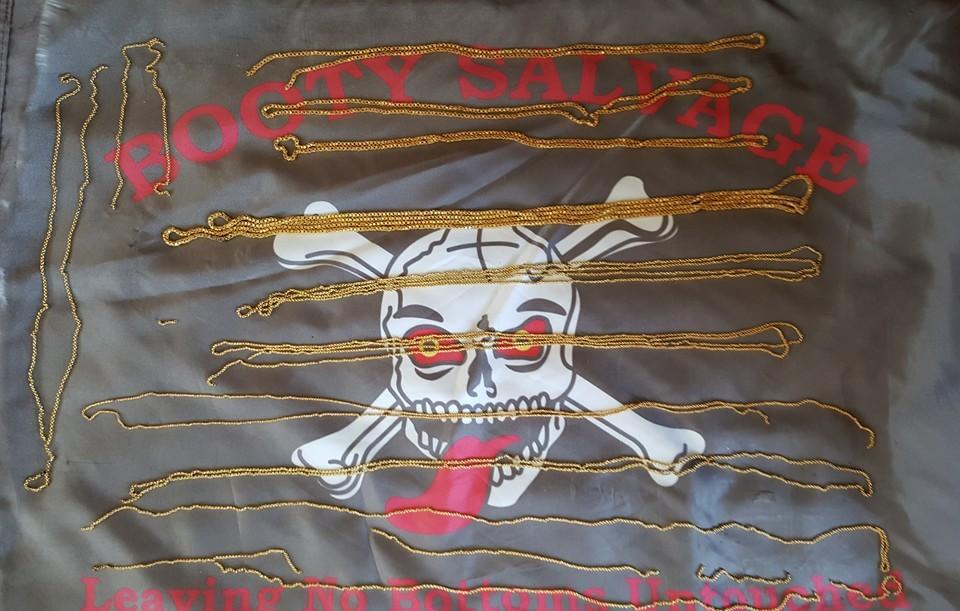
Source: @BootySalvage/Facebook
Eric believes that the exact chain the pyx was connected to had been found a few years earlier, but finding the pyx was certainly the exciting part as it is not only a wildly interesting historical artifact, but it’s also worth several hundred thousand dollars.
That’s Not All Eric Found at the Shipwreck
In addition to the pyx, Eric also uncovered $300,000 worth of gold coins in the old ship.
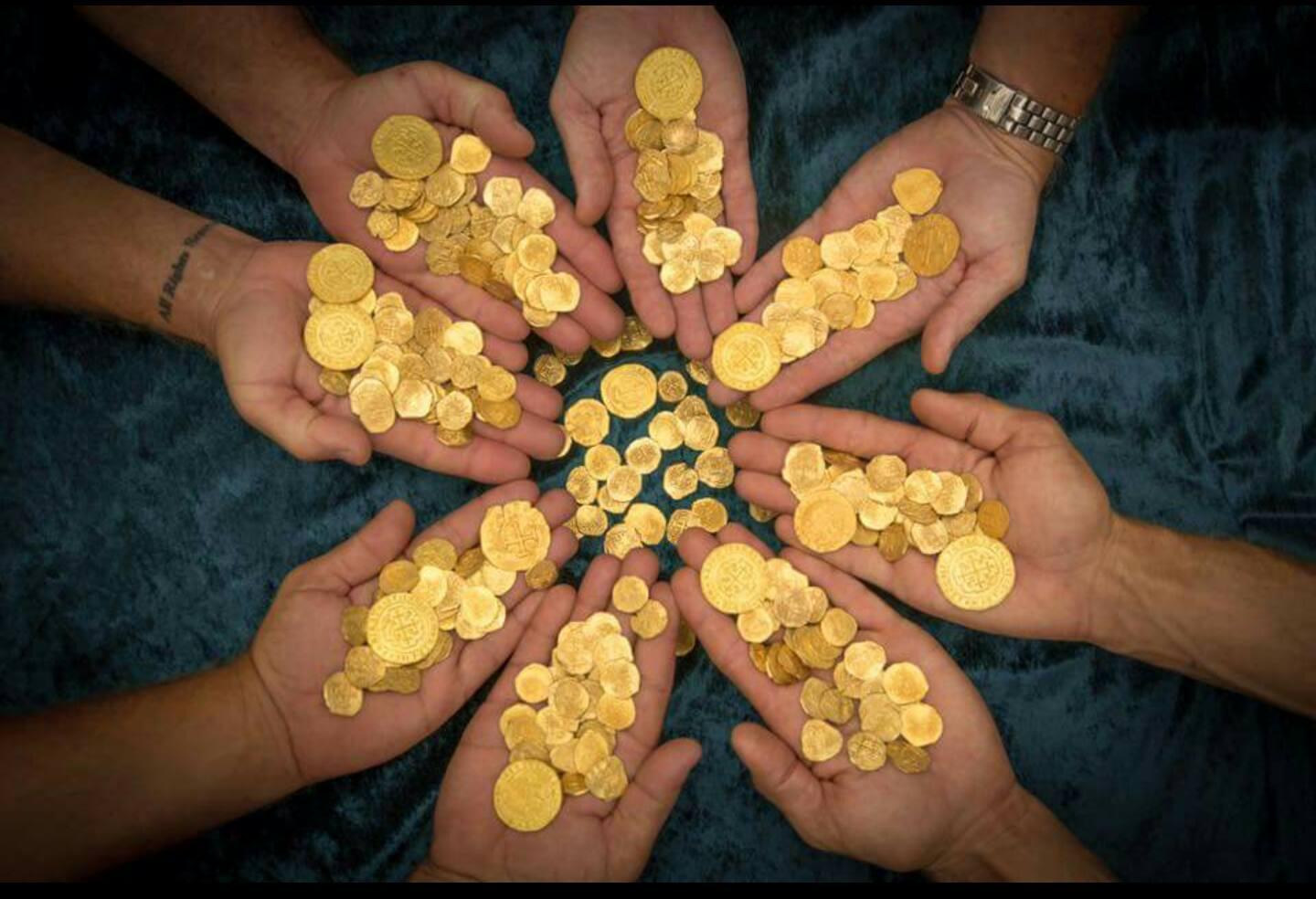
Source: @BootySalvage/Facebook
But although finding the pyx and other valuable coins was definitely a big deal, it wasn’t a completely unique experience for Eric.
Eric’s Life as a Treasure Hunter
Eric Schmitt and his family own and operate their own treasure-hunting business called Booty Salvage; they dive at known wrecks off the coast of Florida, specifically looking for buried gold, pottery, and historical artifacts.
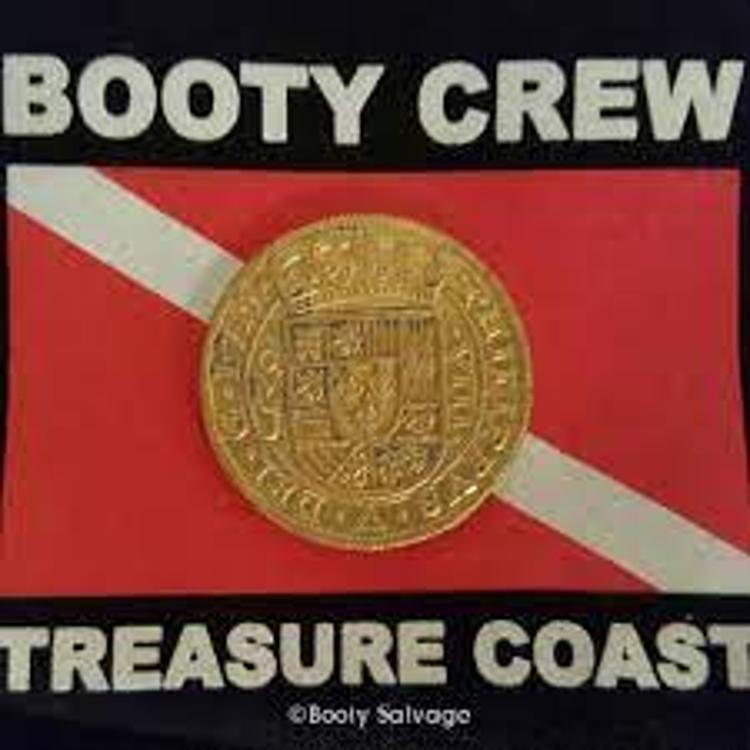
Source: @BootySalvage/Facebook
In fact, Eric had already visited the site where he found the pyx and coins several times before, but this time, he got extremely lucky.
A Little Bit of Luck and a Lot of Hard Work
Although treasure hunting may sound like the most fun job a person could have, the truth is that it is an extremely challenging occupation.
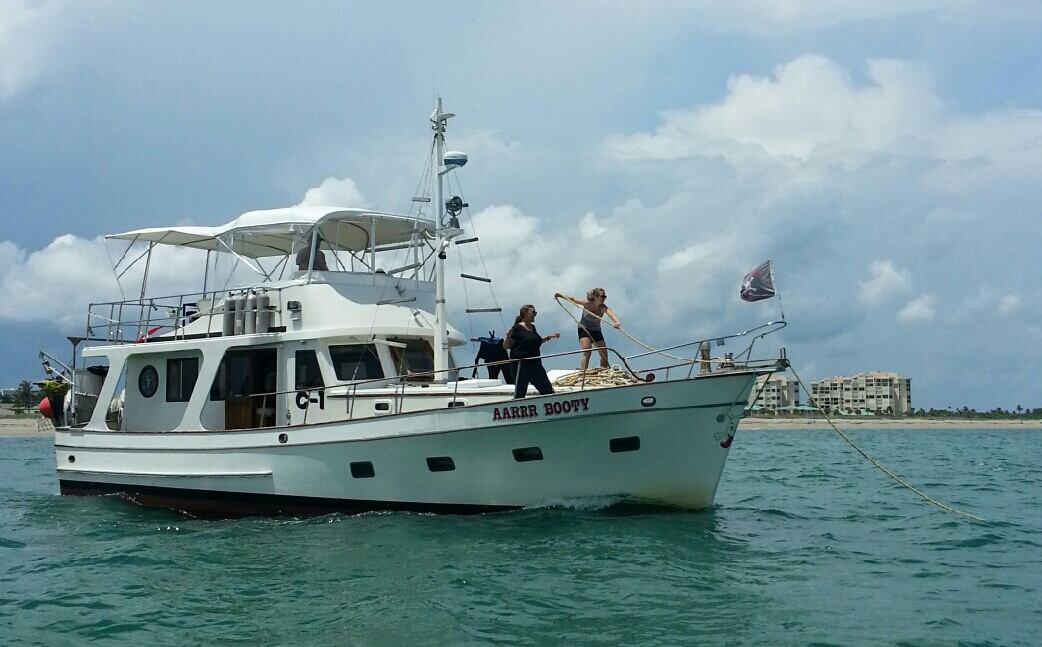
Source: @BootySalvage/Facebook
More often than not, Eric and his family spend hours setting up their boat, appropriately named “Aarrr Booty,” head out to sea in the blazing sun. They dive for hours, meticulously combing the ocean floor, and have nothing to show for it.
How Being a Professional Treasure Hunter Actually Works
Many people don’t realize that being a professional treasure hunter is much like any other occupation; there are rules to follow and people who actually own the wrecked ships on the seafloor.
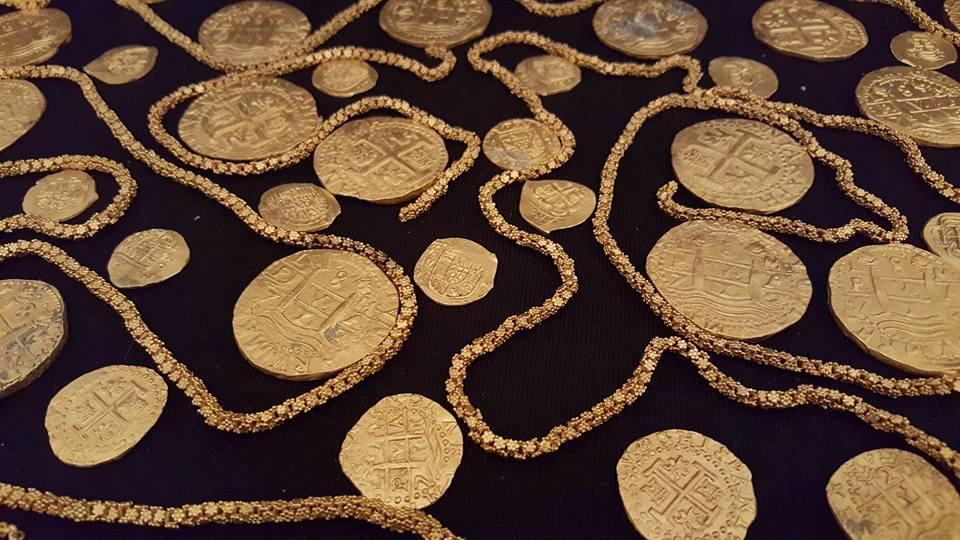
Source: @BootySalvage/Facebook
Here’s how it works: Treasure hunters, like Eric and his family, need to first get permission from whoever owns the wreck to dive there, but whatever they find isn’t theirs to keep. The owner and the hunter usually split the income from the found treasure in some way, depending on the contact they put in place before the dive.
Schmitt & Brisben
The Schmitt family has partnered on this quest for both history and riches with Brent Brisben and his company, Queen Jewels, which owns several wrecks off the coast of Florida.
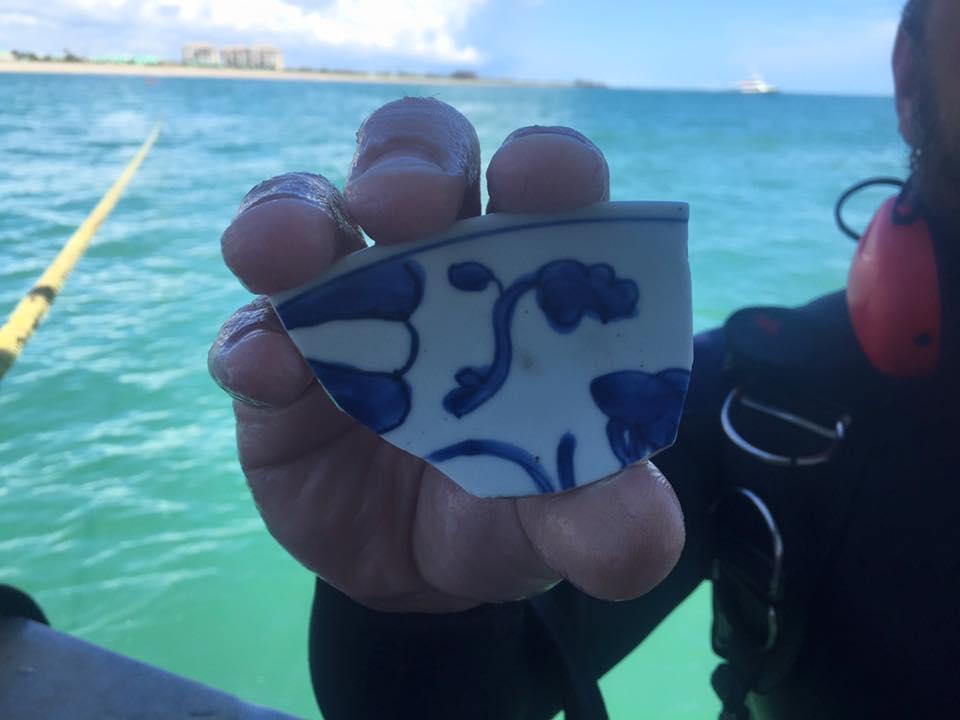
Source: @BootySalvage/Facebook
According to various sources, Schmitt and Brisben will split the money collected from Eric’s big find at the site.
Eric Does Have to Pay Taxes on His Found Booty
Also, all legal treasure hunters have to pay tax on their findings; it’s more or less considered an income tax as the treasure is their livelihood and something they work to collect.
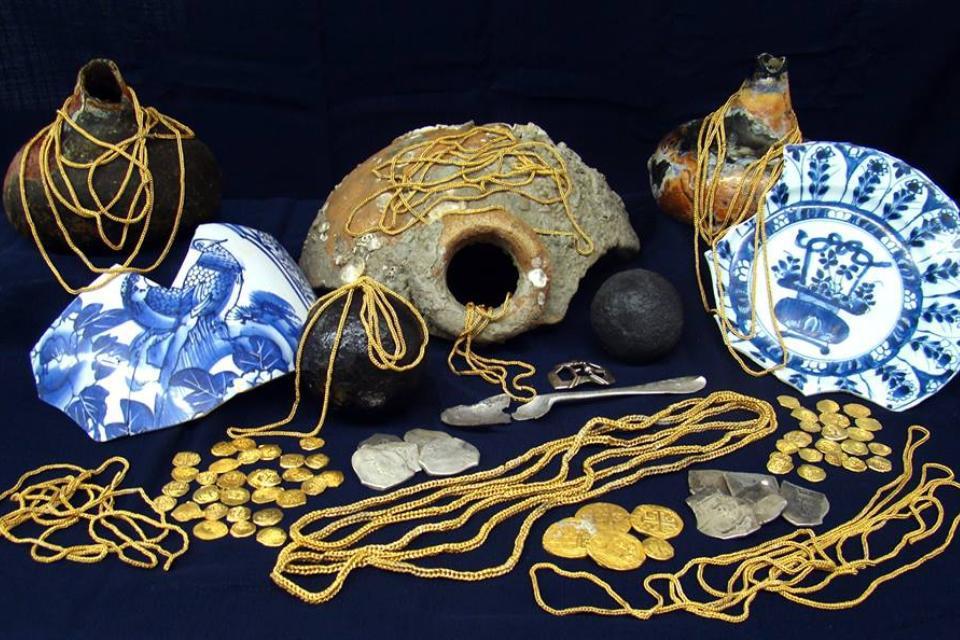
Source: @BootySalvage/Facebook
Taxes vary by state, but in South Florida, the U.S. District Court takes 20% of the treasure’s value.
Treasure Hunting in Florida Can Mean Big Money
Because of Florida’s geographical location, its waters are home to several shipwrecks from the early colonization of the Americas.
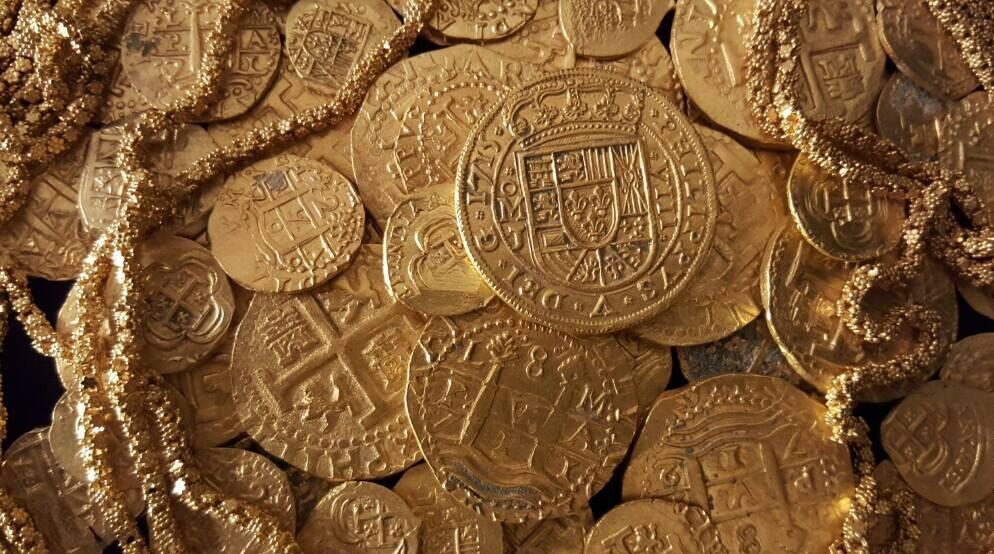
Source: @BootySalvage/Facebook
In the 16th, 17th, and 18th centuries, ships would carry millions of dollars worth of treasure, mainly gold and silver, back to Europe. But because their cargo was so valuable, they would often use dozens of ships and evenly divide the pieces so that if one sank, it wouldn’t lose it all.
Ships Used to Sink All the Time
And, of course, ships did sink, and they used to sink quite a lot due to weather, such as hurricanes or even skirmishes on the high seas.
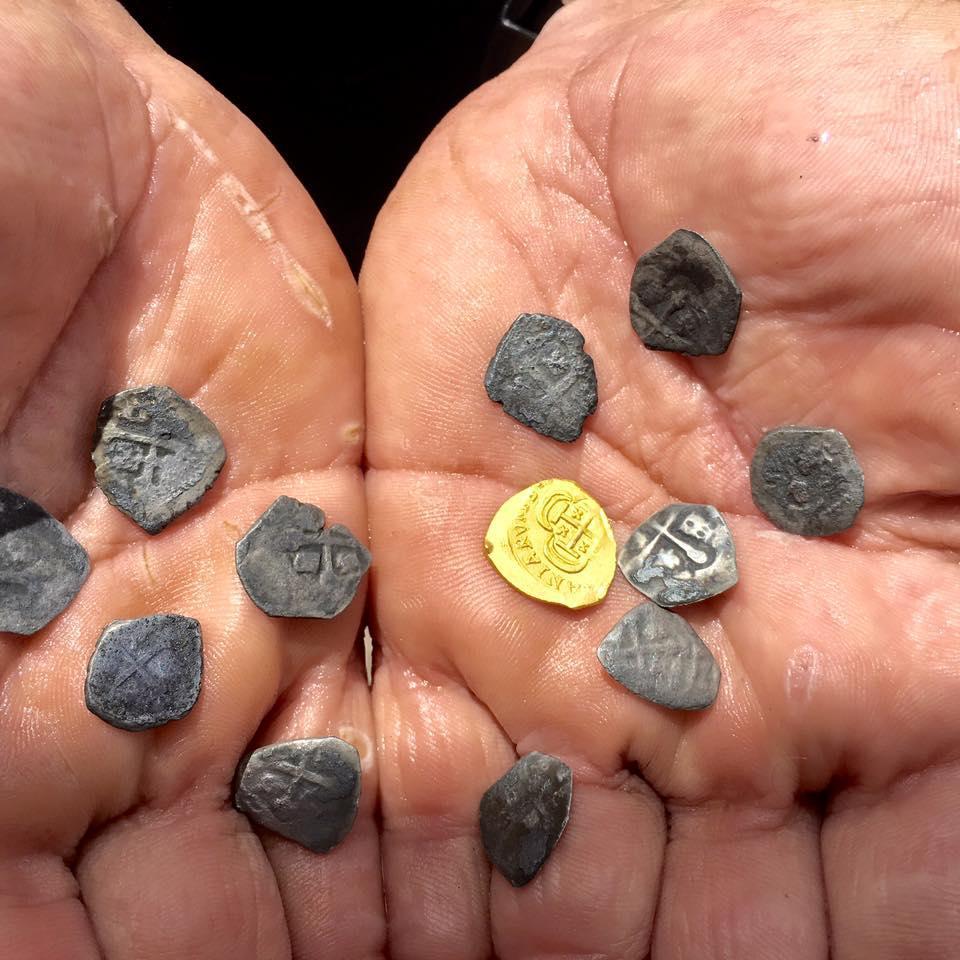
Source: @BootySalvage/Facebook
Luckily, for treasure hunters such as the Schmitt family, there are many wrecks to explore and treasures untold to be found.
It’s Not Just About the Money
While making it rich by finding 300-year-old cold coins is certainly exciting, it’s not the only reason treasure hunters do what they do.
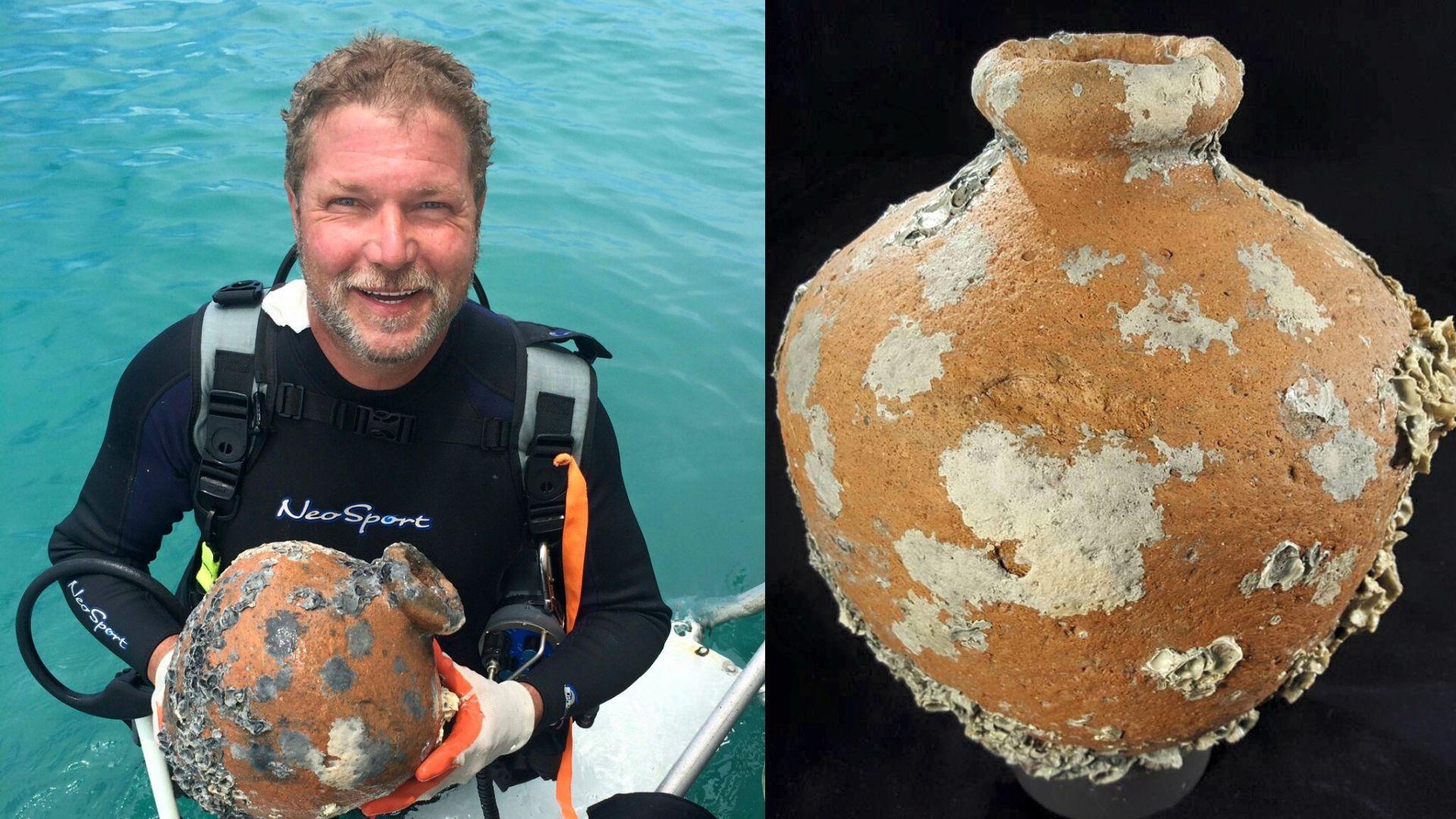
Source: @BootySalvage/Facebook
Many people, like Eric and his family, are dedicated to finding artifacts of historical significance that can show the modern world more about what life was like all those years ago. These pieces are usually sold to museums around the world for all people to enjoy.
Eric & His Crew Will Keep Hunting for More Exciting Treasure
Of course, this isn’t the end of the road for Eric and his family at Booty Salvage.
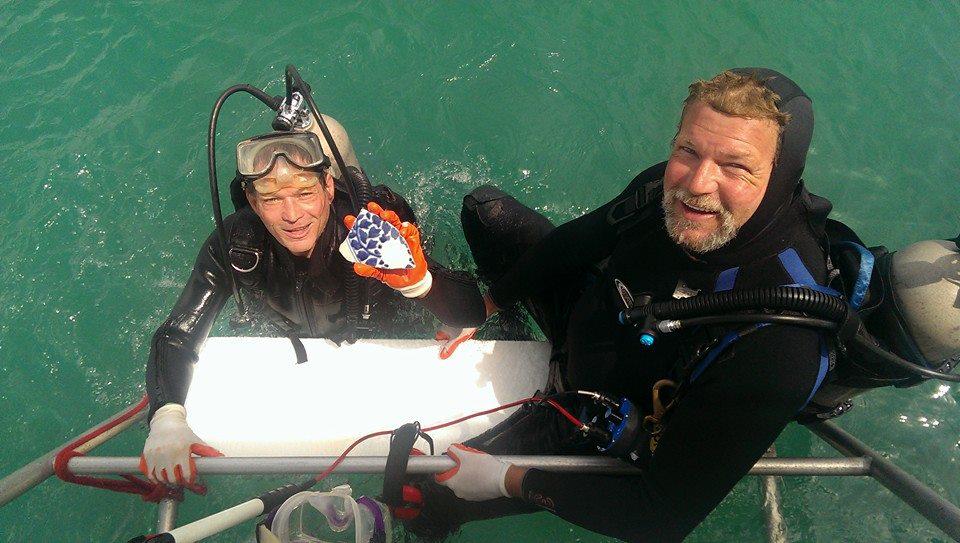
Source: @BootySalvage/Facebook
Although they are thrilled with their historical and valuable finds of the pyx and many gold coins, they will keep diving that wreck and others in the hopes of uncovering more of the water’s well-kept history.
